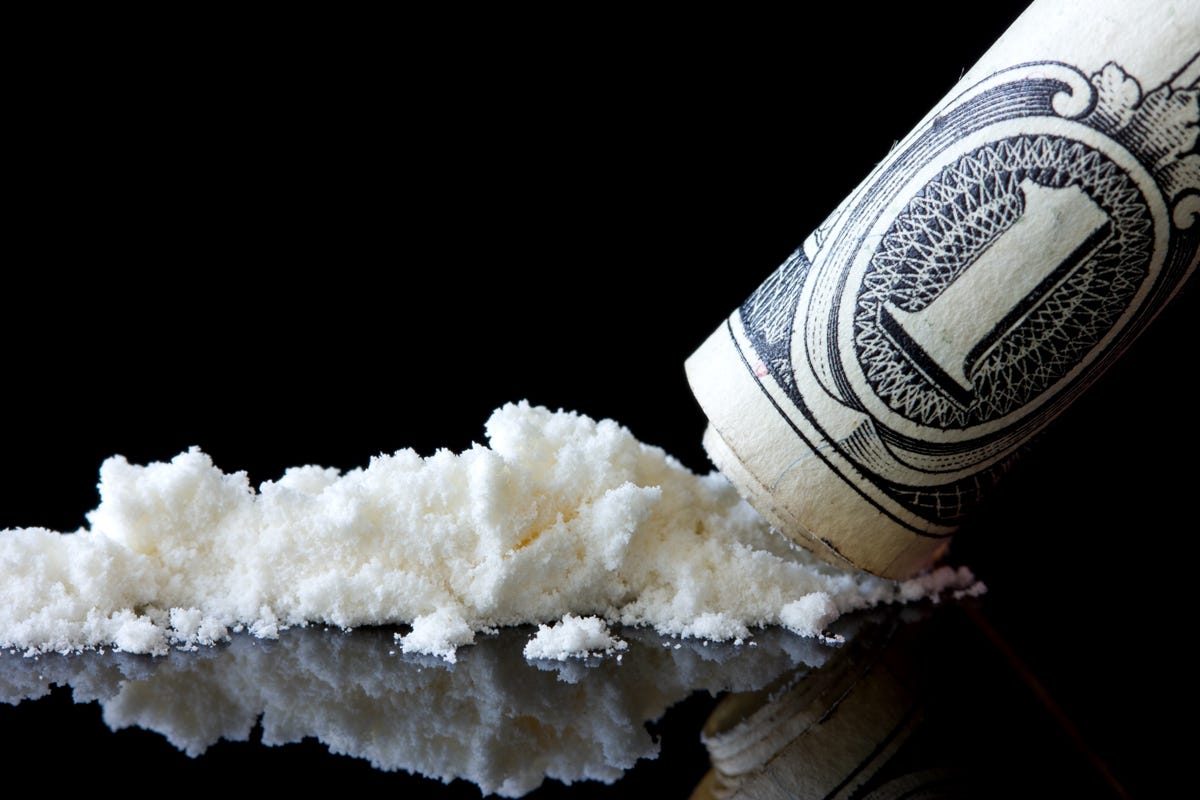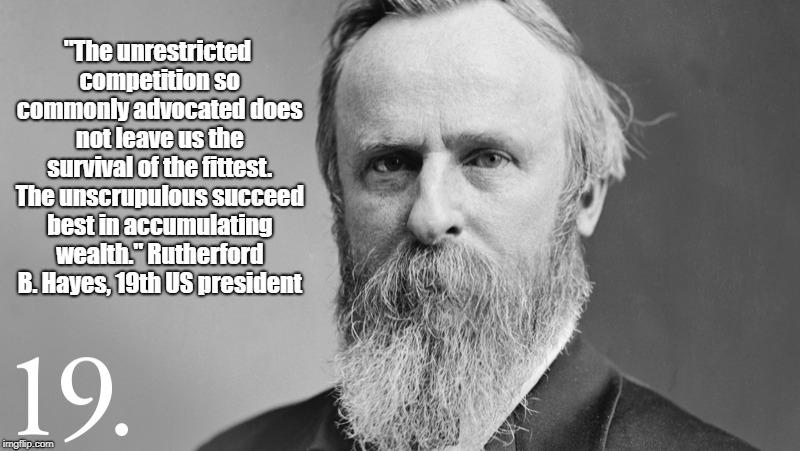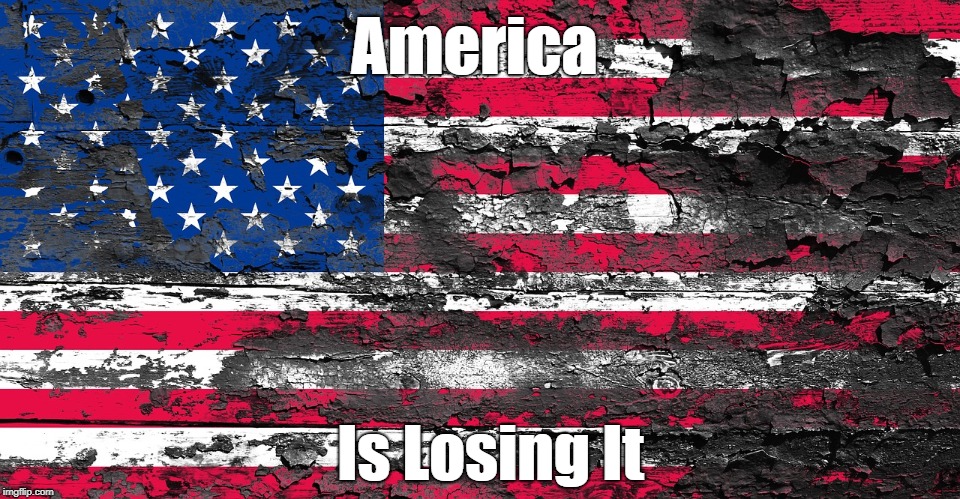
How America Overdosed on Capitalism
America is History’s Greatest Social and Philosophical Experiment in Capitalism. So What do the Results Say?
Umair Haque
Every so often, when I write about capitalism, I get a furious response, from a certain kind of man (it’s always a man): “dude, you don’t even know what capitalism!! I can’t believe this!! You’re so dumb! ”
Translation: Mommy!! Umair’s being mean to me again! Calm down, Tucker. Let’s think about it.
America is something like history’s greatest experiment in capitalism. In a sense, we’re lucky to have it — it’s rare that a society devotes itself furiously, single-mindedly, one-dimensionally to an ideology, rejects the world, and pursues its own course. Here we have something truly rare and unique, which doesn’t happen often in social thinking: a perfect experiment to test the hypothesis — what would happen if a society only ever chose capitalism?
Or, one I like better: what would happen if capitalism were given total freedom to be itself? If it could unfold according to its own logic, rules, choices, destiny — what would it naturally become? What is its nature? Now we can answer that very question, not with theory, but with reality.
(Yet for that very reason, too, we should, instead of idly theorizing about utopian daydreams, as American economists do, simply look at what’s before our eyes. Such cases give us the closest thing that the messy, tangled world can have to a sterile, controlled lab — we’ll never have a 100% pure specimen of anything social, economic, or political, but what we can have is at least is a kind of self-chosen test case. The Soviet Union was a self-chosen test case for absolutist communism, perhaps, if you see my drift — and now, ironically, America’s one for absolutist capitalism. But what does it show us?)
Now, I’ll “define capitalism” — I promise. That’s the point of this essay, in fact. But rather than thinking of what capitalism “is”, I want you to think about it becomes. We’re used to thinking of it in a static way — just as the Soviets thought of communism. But in the real world, things are not ideologies, inflexible, rigid, immoving — they are dynamic, changing, transforming. And so the question “what is capitalism” is better asked as: “what does capitalism become?” Does it become something self-sustaining, nurturing, and giving, like a forest — or something explosive, violent, self destructive, like a fire? Then we also answer the question — “what is capitalism’s nature? What does it become when given total freedom to be itself?”
To reveal the results of the experiment, we must also tell the story of the subject. Once upon a time, American capitalism was made up of small scale capitalists — soda shoppes, drycleaners, auto repairmen. And while even that kind of capitalism depended inherently on a segregated society, which itself relied on the surplus produced by slavery, still, the benefits, at least for some, were stability, mobility, and prosperity. Yet this phase of capitalism in America didn’t last very long. From the 1950s to the end of the 1960s — because in 1971, at the precise moment segregation ended, wages for all began to stagnate.
By the 1980s, a strange thing had begun to happen. Incomes were stuck — but instead of less capitalism, the answer, as it always seemed to be, in America, was more capitalism. So a series of reforms was launched. Social spending was cut and safety nets were shredded. And then the heavy artillery was rolled out. Unions were decimated. Stable, secure pensions became investment accounts. Privatization swept the land. By the 90s, even more extreme capitalist reforms — as in more capitalism — were enacted. Student debt was now something that would follow you past bankruptcy, perhaps beyond the grave. Medical bankruptcy started to become a reality. People could be hired and fired at will. Jobs became things without benefits.
But why was all this happening? Well, the answer we tend to give today is: “money bought politics.” That’s true — but it kind of hides the point. Waves of capital began to corrupt the political system. In other words, capital was beginning to corrode democracy. The idea of the neutral, benevolent capitalist, in other words, was beginning to be revealed as a myth.
By the 2000s, this corrosion of democracy was yielding spectacular results — for capital, anyways. Labour’s share of income had now been stuck for decades. But neither political party cared to offer a platform which offered anything but more capitalism — it was either extreme capitalism, or slightly less extreme capitalism. As a result, Americans tuned out of democracy altogether — it was as if capitalism had conditioned them to believe that nothing else was possible. Nobody offered them working healthcare, education, media, finance, transport, safety nets, jobs, incomes, careers — and working harder every year for less real income, who had time or energy for politics, anyways? Life began to feel frightening, unstable, uncertain. Trust collapsed. Attitudes polarized. Inequality spiraled.


By the 2010s, American life had begun to implode. Americans were broke, desperate, and scared. The middle class, for the first time in history, became a minority. 80% of Americans — even the once affluent — began living paycheck to paycheck. Most Americans had less than $1000 in savings. Meanwhile, the price of everything that people genuinely needed — not just wanted — began to skyrocket to eyewatering, astonishing levels, something like Venezeulan hyperinflation. Healthcare rose by 2000%. Education, by 1000%. Food, by 400%. It seemed as if capitalism was quite happy, with one hand, to drop the price of idle luxuries like TVs and laptops, with which to dull the pain—of squeezing Americans so hard, with the other, of going broke paying astronomical prices for life’s necessities.
The problem with this was hiding in plain sight, and yet American economists appeared unable to see it, much less grasp it. The necessities are things people can’t live without. What difference does it make if the price of a TV drops by 50%, when the price of healthcare rises by 2000%? The TV might save you $50, but capitalism is taking it back with the other hand, when you pay $5000 for healthcare. Yet by offering people cheap luxuries, but absurdly, crushingly expensive necessities, capitalism seemed to fool American economists — who assumed it was the answer to everything to begin with — into believing that everything was just fine.
After all, profits, on the back of the pincer movement of cheap luxuries and absurdly expensive necessities were soaring, to heights never before seen. As a result, the stock market boomed — and the economy grew.
What no one noticed, though, was that this was predatory growth. It was growth premised on extracting the incomes, savings, livelihoods of the people who had once been the middle class, and were now the new poor (and of course, of the poor as well). But not just that — their bodies, minds, souls, towns, cities, futures, and democracy itself too. All these things were left ruined and destroyed. American life expectancy plunged: bodies. The Rust Belt was left to rot: cities and towns. Americans began to believe strange and foolish things, like vaccines were bad for them — minds. Suicide rates skyrocketed — souls. And so on.
Every last aspect of American life had been shattered by this point — the late 2010s. The data revealed it starkly. Whatever dimension of life anyone cared to look at, it was falling apart — health, trust, meaning, belonging, optimism, faith in the future — everything had vanished. What had taken it away? Predatory capitalism had. Jeff Bezos was the richest man in the world. But the people who worked for him were sleeping in their cars, unable to afford homes. Bang! American life had imploded.
The result of one of history’s greatest experiments — what happens when a society only chooses capitalism — say something like this. At a small, human scale, capitalism works well. It’s necessary and even noble for people to take risks, start enterprises, invest in their own talents, and so forth. That was the America of a golden age — at least in an imperfect, flawed way, still segregated, at war, uneasy with itself.
But something happens as capitalism grows. The winners seem to win, and win big. They eat the smaller fish. The losers are abandoned. Capitalism undergoes something like a phase change, going from liquid to solid. And as it freezes up and hardens, the results are what we see across America today — monopolies, financialization, corruption, corrosion. Capitalism at this scale eats through every last thing of genuine worth and value in a society — as we’ve discussed, from minds to bodies to souls to the democracy which nurtures them itself.
I said I’d define capitalism for you, and now we can. In a static sense, capitalism is just “private owners of capital, maximizing profits.” But there are two very great problems here. It’s those very actors who, as they grow rich and powerful, define what that “capital” is. In the past, they defined it as slaves. It took centuries, and a war, to undo that definition. In the 80s, they were allowed to define it as pension funds to raid — and in the 90s, as debts which could never be discharged. The second problem is that it’s those actors who, as they grow powerful and rich, define what “profits” are, too. Are profits “opioids which cause addiction and suicide?” Sure they are — according to capitalists. Are they “charging people 2000% percent more for a lifesaving drug, just because a monopoly can?” Sure they are — according to capitalists.
(All that’s easy to understand once you see that capitalism is based, at minimum, on percentages. My thousand dollar investment gains me the same percentage as your million dollar one. But in an absolute sense, that means that you are much, much richer than me, faster — and so inequality will necessarily spiral. Since you grow richer than me, faster — what if you use your wealth and power to define “capital” and “profit” in ways that benefit you? That is what American capitalists did — and it’s one of the things the experiment proves, too.)
Remember when I said that the dynamic definition of capitalism, not the static one, is the one which really counts? Now you see why? Capitalism at a small scale is a desirable, necessary, and even a beautiful thing. But capitalism does not stay at that scale unless it is moderated, tamped, and restrained. It’s natural tendency is towards monopoly, at ever greater scales. Winners who win big rewrite the rules of “profit” and “capital” to go on winning bigger — but those redefinitions are usually profoundly self-destructive to a society they’re composed, in reality, of costs that others must pay, not of things of genuine value being created.
(Think pension funds being raided, or student debt following people past bankruptcy, or hedge funds trading stocks. But that also means that capitalism will consume itself, in the end, like a fire — it will eat through everything, “capitalizing” it, owning it, using it and abusing it, and discarding it the second it is no longer “profitable” — whether minds, bodies, hearts, souls, norms, values, democracies, not to mention the planet.)
So while it’s nice to dream of a society in which “capitalism” means “capitalists don’t get to make the rules”, one of the things I think the American experiment shows us is that such a society is a utopian dream. Capitalism makes capitalists, and capitalists make the rules of capitalism. What is necessary, therefore, is to prevent capitalism from eating through a society wholesale from the very beginning. To limit it what it does best — which is the kind of gentle, human, mom-and-pop, enterprise which keeps my downtown neighborhood thrumming and buzzing.
America shows us that capitalism is a Pharmakon. The very concept, which dates back to Socrates, means something that when taken in small amounts, which is good for us — but which can kill us if taken in large amounts. In small amounts, a remedy, a medicine, but in large doses — a deadly poison. In that way, capitalism is not a static thing, and it is the dynamic definition which truest.
Like many Pharmakons, from alcohol to vitamins, we need capitalism in small quantities, to live well, everyday. In those quantities, it makes life itself enjoyable, vibrant, interesting. But what happens if we take too much of it, too fast? Then we overdose. Everything seizes up. Our muscles judder, and our minds go blank. A insatiable kind of hunger rips through us. Capitalism becomes predatory — and chews threw every last thing in a society, mindlessly.
We’re lucky, in a way, to have undergone the American experiment. It’s the closest thing history will ever have to a lab test of capitalism — what happens when it’s given total freedom to dynamically unfold, according to its own inherent logic and purpose. The results are in now, and they’re far from pretty. The question for America is if the subjects of the old experiment can become the authors of a better one.
Umair
August 2018

August 2018

No comments:
Post a Comment